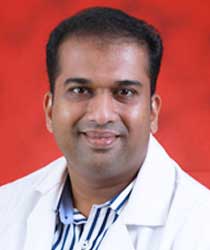PSYCHIATRY
-
-

-

-

-

-

Dr. Suman Varghese Sam
- Senior Resident (SR)
-
Read more..
Mission and Educational Objectives
The UG program in Psychiatry at Believers Church Medical College aims to provide students with a comprehensive understanding of mental health disorders, their diagnosis, treatment, and management within the context of general medicine.
Curriculum
- Comprehensive curriculum covering core principles of psychiatry, including psychopathology, assessment, pharmacotherapy, and psychotherapy.
- Integration with other medical disciplines to ensure a holistic approach to patient care, recognizing the interplay between physical and mental health.
Clinical Training
- Practical clinical training in psychiatric wards, outpatient clinics, and emergency departments to evaluate and manage patients with a wide range of mental health disorders.
- Exposure to various psychiatric conditions, including mood disorders, anxiety disorders, psychotic disorders, substance use disorders, and neurodevelopmental disorders.
Faculty Expertise
- The department is staffed with experienced psychiatrists who specialize in various areas of mental health.
- Faculty members actively engage in clinical practice, research, and academic activities aimed at advancing psychiatric knowledge and patient care.
Technology Integration
- Utilization of modern medical technology, including psychiatric assessment tools, telepsychiatry, and electronic health records, to enhance diagnostic accuracy and treatment planning.
- Training in the use of digital tools for medical documentation and evidence-based practice in psychiatric care.
Critical Thinking and Problem-Solving
- Emphasis on developing critical thinking skills for accurate diagnosis and effective management of psychiatric conditions.
- Case-based learning and clinical discussions to enhance problem-solving abilities specific to psychiatric practice.
Patient-Centered Care
- Focus on patient communication, empathy, and shared decision-making in the delivery of psychiatric care.
- Training in ethical practices and patient confidentiality within the context of mental health treatment.
Postgraduate (PG) Program
Research Opportunities
- Encouragement for PG residents to engage in psychiatric research projects, exploring the etiology, treatment, and outcomes of mental health disorders.
- Collaboration with faculty on ongoing medical research initiatives aimed at advancing psychiatric science and improving patient care.
Continuing Medical Education
- Regular participation in national and international psychiatric conferences, workshops, and seminars.
- Staying updated on the latest advancements in psychiatric science, treatment modalities, and evidence-based practices.
Teaching and Training
- Involvement in undergraduate medical education, providing teaching and mentorship to UG students in psychiatric principles and practice.
- Training in medical education principles and effective teaching methodologies specific to psychiatry.
Patient Care Leadership
- Training in leadership and management skills for effective coordination of psychiatric services within healthcare settings.
- Involvement in multidisciplinary healthcare teams for comprehensive patient management, integrating psychiatric care into overall treatment plans.





